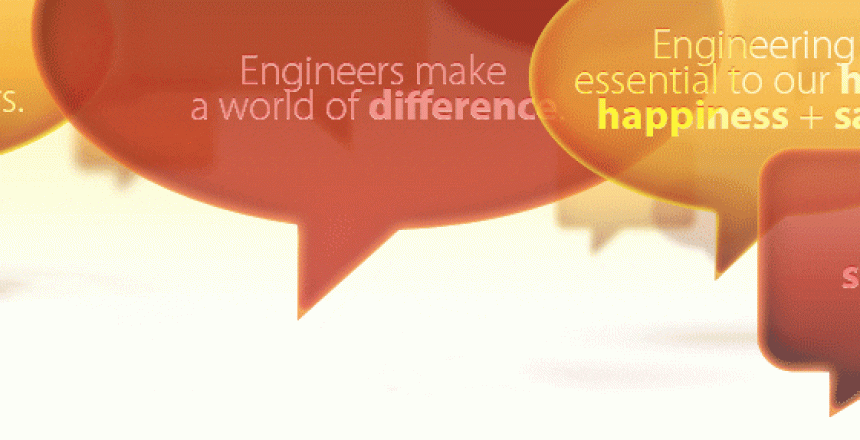 The first book I read as I began my Ph.D. in Engineering Education was Changing the Conversation: Messages for Improving Public Understanding of Engineering, published by the National Academy of Engineering. The book, for the most part, proposes that we must change the image of engineering from a nerdy math genius exiled to life in a cubicle, to an image of a socially responsible creative collaborator that is making a tremendous difference in the world, all in order to attract more young people to the profession. The quantitative study revealed that there were significant gender differences, and while I do not think it was the study’s intent, I extracted a few ideas that I have carried with me and proclaimed regularly in my work with educators. Young women found the phrase “Engineering makes a world of difference” the most appealing, and the second most appealing message for girls was “Engineering is essential to our health, happiness, and safety.” I have fixated on this gender difference, and do not often enough emphasize that young men, like young women, find the phrase “Engineering makes a world of difference” the most appealing. Equally appealing to young men is the phrase “Engineers are creative problem solvers.”
The first book I read as I began my Ph.D. in Engineering Education was Changing the Conversation: Messages for Improving Public Understanding of Engineering, published by the National Academy of Engineering. The book, for the most part, proposes that we must change the image of engineering from a nerdy math genius exiled to life in a cubicle, to an image of a socially responsible creative collaborator that is making a tremendous difference in the world, all in order to attract more young people to the profession. The quantitative study revealed that there were significant gender differences, and while I do not think it was the study’s intent, I extracted a few ideas that I have carried with me and proclaimed regularly in my work with educators. Young women found the phrase “Engineering makes a world of difference” the most appealing, and the second most appealing message for girls was “Engineering is essential to our health, happiness, and safety.” I have fixated on this gender difference, and do not often enough emphasize that young men, like young women, find the phrase “Engineering makes a world of difference” the most appealing. Equally appealing to young men is the phrase “Engineers are creative problem solvers.”
My confession is this: I have been convicted of essentialism in my work to increase the participation of women in engineering. Essentialism, (according to Merriam-Webster) is the practice of regarding something (as a presumed human trait) as having innate existence or universal validity rather than as being a social, ideological, or intellectual construct. I am guilty of over simplification in my work, and must challenge myself to avoid essentialism when I talk about “diversity” in engineering. Granted, there is an abundance of literature that supports the notion that women are drawn to social applications in engineering, however, after reading the following quote, I became convicted to take caution in how I teach:
[quote]A common strategy used to encourage more women into computing and engineering is to emphasize the social elements of technical work – such as the growing importance of organization or communication in information technology – on the assumption that women will both be more attracted to and have more to offer engineering if it is defined in nontechnical terms. [Faulkner pg 101][/quote]
I cannot tell you how often I have touted that women are drawn to social applications, and that these phrases (mentioned above) are most attractive to women, and that we must talk about engineering in a way that will appeal to women using these messages. The question I have in my mind is, how has this platform promoted women as social beings rather than technical beings? Am I perpetuating a stereotype in my singular effort to deny another? It is not an either/or! Women are great at math and science – and all that “technical-stuff,” and make great engineers! Women are just as capable to be brilliant design engineers as men, and can become elite technical contributors, too. After all, some women may not be drawn to the social aspects of engineering, but rather the intensely technical challenge. It might be a bit strange for anyone, male or female, to vocally deny that they aren’t pleased if their work makes a difference, but this social instinct might not be the original attracting factor for all.
The conviction challenges me to be more descriptive when I talk about the Changing the Conversation messages, and be careful not to make essentialist statements that just shove men and women into tidy little gender-stereotyped boxes, from which I am really trying break them free.
Reference
Faulkner, W. (2000). “The power and the pleasure? A research agenda for “making gender stick” to engineers.” Science, Technology & Human Values25(1): 87-119.
Image Source: http://www.engineeringmessages.org



One Response